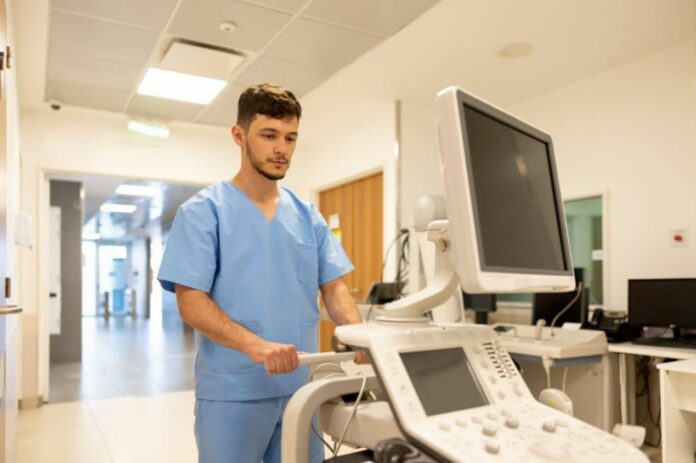Is it artificial intelligence (AI) or a sonographer? Who is better at assessing and diagnosing cardiac function after reviewing an echocardiogram?
Cedars-Sinai researchers have published a study in the peer-reviewed journal Nature, which shows that AI outperformed sonographers in assessing and diagnosing cardiac function based on echocardiogram evaluations.
Investigators from the Smidt Heart Institute and the Division of Artificial Intelligence in Medicine at Cedars-Sinai conducted a groundbreaking blinded, randomized clinical trial of AI in cardiology, leading to these findings.
David Ouyang, MD, a cardiologist and the principal investigator of the clinical trial, and the senior author of the study, stated that the outcomes have both immediate and far-reaching consequences for cardiac imaging.
Dr. Ouyang added that the trial provides solid evidence that implementing AI in this innovative manner can enhance the quality and effectiveness of echocardiogram imaging for numerous patients.
The investigators express confidence that this technology will prove advantageous when utilized throughout the clinical system at Cedars-Sinai and in health systems across the country.
“This successful clinical trial sets a superb precedent for how novel clinical AI algorithms can be discovered and tested within health systems, increasing the likelihood of seamless deployment for improved patient care,” added Sumeet Chugh, MD, director of the Division of Artificial Intelligence in Medicine and the Pauline and Harold Price Chair in Cardiac Electrophysiology Research.
Last year, scientists from the Smidt Heart Institute and Stanford University created one of the earliest AI technologies to evaluate cardiac function, particularly left ventricular ejection fraction, a crucial cardiac measurement used to diagnose cardiac function. The researchers’ findings were also published in Nature.
The latest study sought to expand on these findings by comparing the initial evaluation of 3,495 transthoracic echocardiogram studies made by AI or by a sonographer (an ultrasound technician), to determine whether AI is more precise in its assessment.
The study showed:
- Cardiologists tended to concur more frequently with the initial assessment made by AI and made changes to only 16.8% of the AI-generated assessments.
- Cardiologists made corrections to 27.2% of the initial assessments made by the sonographers.
- The physicians were unable to distinguish between assessments made by AI and those made by sonographers.
- AI assistance saved time for both cardiologists and sonographers.
“We asked our cardiologists to guess if the preliminary interpretation was performed by AI or by a sonographer, and it turns out that they couldn’t tell the difference,” added Ouyang. “This speaks to the strong performance of the AI algorithm as well as the seamless integration into clinical software. We believe these are all good signs for future AI trial research in the field.”
Dr. Ouyang hopes that using AI in cardiac imaging will help reduce the time spent by clinicians and minimize the more repetitive aspects of the process. Nevertheless, the final decision on the AI model output will still be made by the cardiologist as the ultimate expert.
The clinical trial and the ensuing published research also underscore the possibility of acquiring regulatory approval for this technology.
Susan Cheng, MD, MPH, director of the Institute for Research on Healthy Aging in the Department of Cardiology at the Smidt Heart Institute and co-senior author of the study, stated that this research sets a new standard for AI technologies that are being considered for regulatory approval. She added that the FDA has previously authorized AI tools without prospective clinical trial data. Dr. Cheng believes that this degree of evidence gives clinicians additional confidence as health systems continue to implement AI to enhance overall efficiency and quality.
Source: 10.1038/s41586-023-05947-3
Image Credit: Getty
